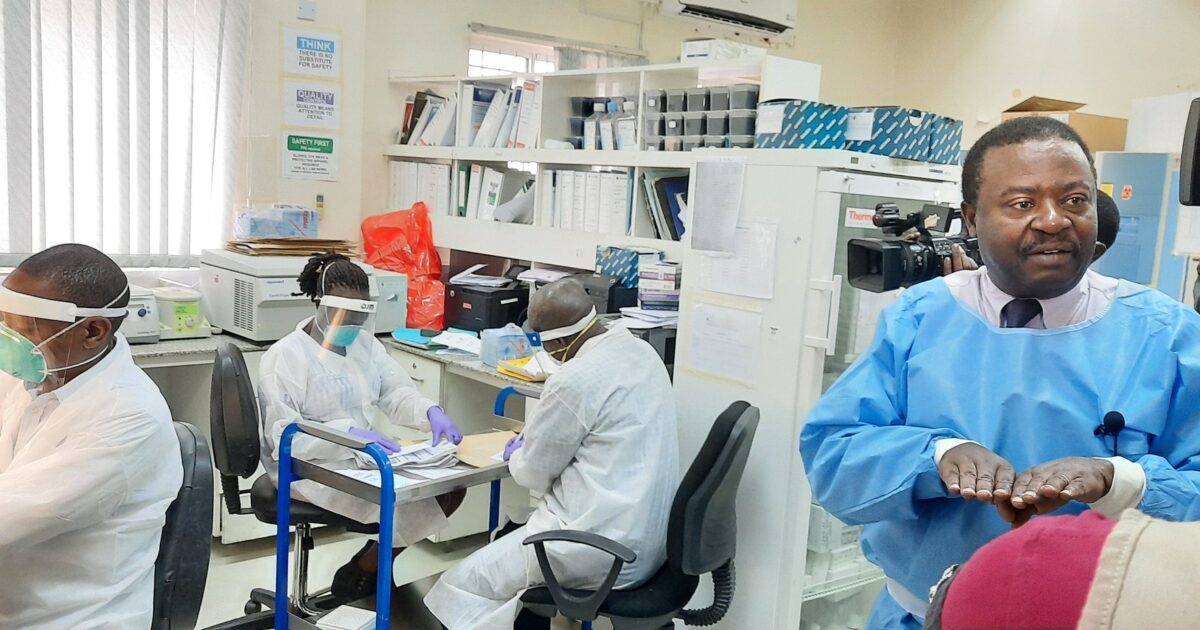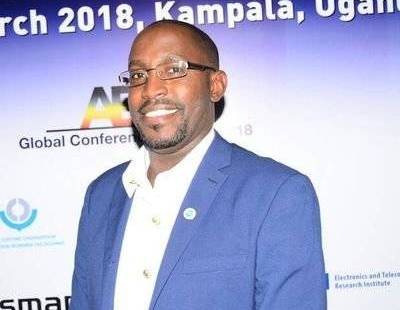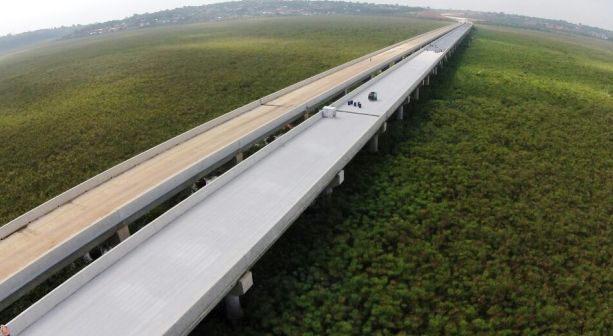Pontiano Kaleebu, the Director of the Uganda Virus Research Institute (UVRI) explains the processes involved in COVID-19 testing
By EMMANUEL AINEBYOONA
This week, on Wednesday, 8th July, 2020, I started my working day on a rather different note, at the Uganda Virus Research Institute (UVRI), the center stage for COVID-19 testing in Uganda.
Despite, my daily busy schedules at the Ministry of Health quarters in Wandegeya that are characterized by Zoom meetings and Media inquiries on the prevailing COVID-19 situation in Uganda, I decided to hitch a ride with the video crew that is currently undertaking a Communication Campaign dubbed “Faces of Care.”
The campaign intends to highlight the role played by frontline workers and health care workers in Uganda’s COVID-19 Response. It is being jointly implemented by teams from Ministry of Health, Ministry of ICT and National Guidence and Uganda Broadcasting Corporation (UBC) with support from Konrad-Adenauer-Stiftung (KAS).
Together with the film crew, we set off from Kampala at 8:30am for Entebbe at via Kabalagala, Kansanga and Munyonyo on to the Entebbe Express Way and by 9:30am we had arrived at the magnificent Campus of UVRI that overlooks East Africa’s shared water body, Lake Victoria that is locally called Nalubaale.
Upon arrival at UVRI, we were subjected to a detailed security screening at the main entrance given the high level of significance the institution holds as far as global health security is concerned in Uganda.
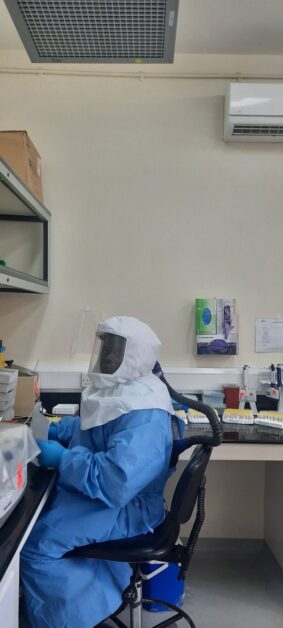
Shortly after clearance, we headed towards the official reception of the laboratory in an old but well maintained colonial building with an inscription of the year the laboratory was started in Roman numerals; MCMXXX1.
Did you know that UVRI, Uganda’s oldest and one of Africa’s finest laboratories started as early as 1930? What is interesting to note is that the laboratory which is situated in the breezy and less polluted Entebbe has maintained its colonial architecture. I believe this environment has allowed scientists experiment and play with their very many skills in leading Uganda in research on various diseases not only on the African Continent but the entire world.
The laboratory has a wide range of collaborations with leading research institutions across the globe like the London School of Hygiene and Tropical Medicine.
Alas! We had achieved the rare time keeping culture by arriving 30 minutes ahead of the scheduled appointment given by the Director of UVRI, Professor Pontiano Kaleebu.
While we waited for the Director, the hosts served us a hot cup of Ugandan grown coffee after undergoing infection Prevention measures of hand washing/ sanitizing. I tell you what?, every door way at UVRI is fitted with a sanitizer given the highly infectious pathogens that are investigated at the laboratory.
At exactly 10:00am, we were joined by the eloquent and articulate, Professor Kaleebu who narrated the role the laboratory has played in combating disease outbreaks that include: COVID-19, Viral hemorrhagic fevers (Ebola, Marburg, Rift Valley Fever, Crimean Congo Hemorrhagic Fever), HIV, Yellow Fever and Malaria among many others that also include Non Communicable Disease like Diabetes.
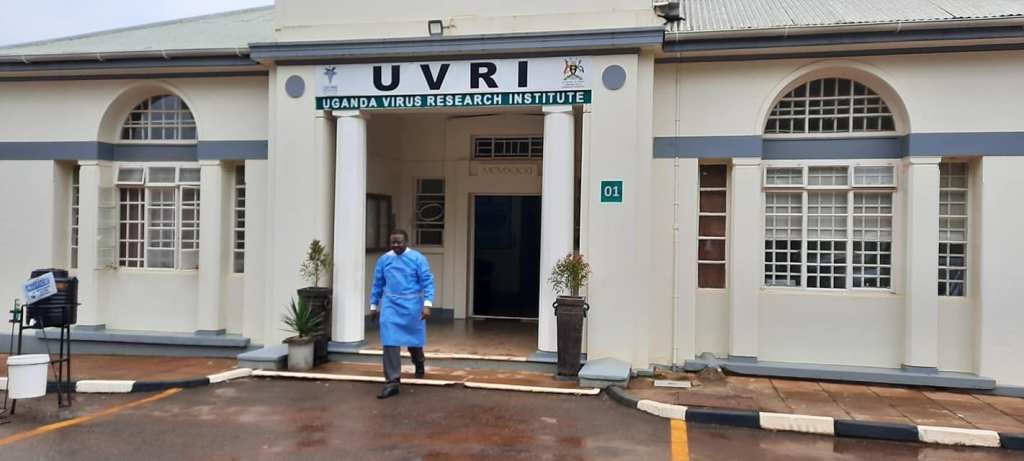
In his interview, the virologist narrated his journey as a researcher and how he has risen through the ranks at UVRI having joined the research institution at around 1988 as a junior medical officer. He took us through his journey, something that will be relayed by the “Faces of Care” project.
However, in detail, he narrated the role UVRI has played in COVID-19 testing before taking us through a guided tour of the various laboratories at the Research campus.
UVRI hosts many international partners and is the national reference laboratory for HIV testing, quality assurance and the HIV drug resistance. It also houses the World Health Organization (WHO) measles and rubella regional reference laboratory and the WHO Inter-country polio laboratory; Viral Heamorrhagic Fever national and regional labs, the human influenza reference lab and recently designated the WHO Yellow fever reference laboratory in the region.
In a nutshell, we witnessed a meticulous process of COVID-19 testing at the laboratory which begins with the process of receiving the samples collected through the countrywide hub system.
The samples are normally marked with bar codes which are entered into a tablet by an officer at UVRI. Remember, these samples are collected from alerts within the community, contacts of confirmed cases and truck drivers who arrive from neighboring countries via the different points of entry. This process is done by sample collectors who handover samples in special storage boxes to the transporters.
When the samples are delivered and received, the testing process then begins with various laboratory teams working together to enable smooth flow of the samples through the various stages.
This is followed by sample extraction which occurs from the transportation media followed by amplification. It’s in one of the laboratory rooms that I first physically encountered some of the machines like the Bio-safety cabin that I have been hearing about via the numerous zoom meetings when the Head of Uganda National Laboratory Services, Dr. Susan Nabadda Ndidde makes her technical presentations.
We were also taken through how the samples are loaded onto a GeneXpert which performs the Polymerase Chain Reaction (PCR) test.
I learnt something new during Prof. Kaleebu’s narration, that our very own UVRI had the expertise to test COVID-19 even before the first case was registered on the African Continent.
He recalled that the only bottle neck was the absence of the specific COVID-19 testing kit and regents. But, he quickly said that their partners like World Health Organization (WHO) bridged this gap and availed Uganda with the specific COVID-19 testing kits.
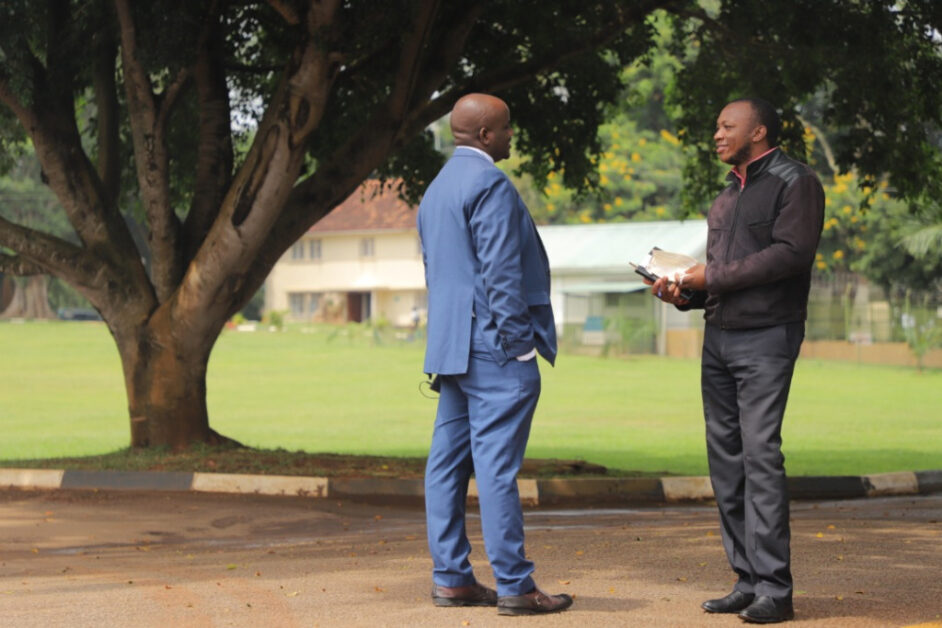
Consequently, some of the technical staff at UVRI participated in a continental training in Senegal to enhance their skills in testing for this virus that has now ravaged the globe, costed lives and destroyed economies. Indeed, in the early days of preparations, some samples were sent to laboratories in South Africa for confirmatory tests. I am glad to note that UVRI was the laboratory that tested the sample that turned to be the first COVID-19 case in country on 21st March, 2020.
Initially, testing was exclusively done at UVRI but has since been expanded to the other centers that include: Makerere University Department of Microbiology and Immunology, Central Public Health Laboratories (CPHL) in Butabika, laboratory in Adjumani and additional testing Mobile laboratories at Mutukula and Malaba points of entry. Collectively, to-date, all the laboratories have tested a cumulative total of 221,675 samples.
The author is the Senior Public Relations Officer at Ministry of Health


